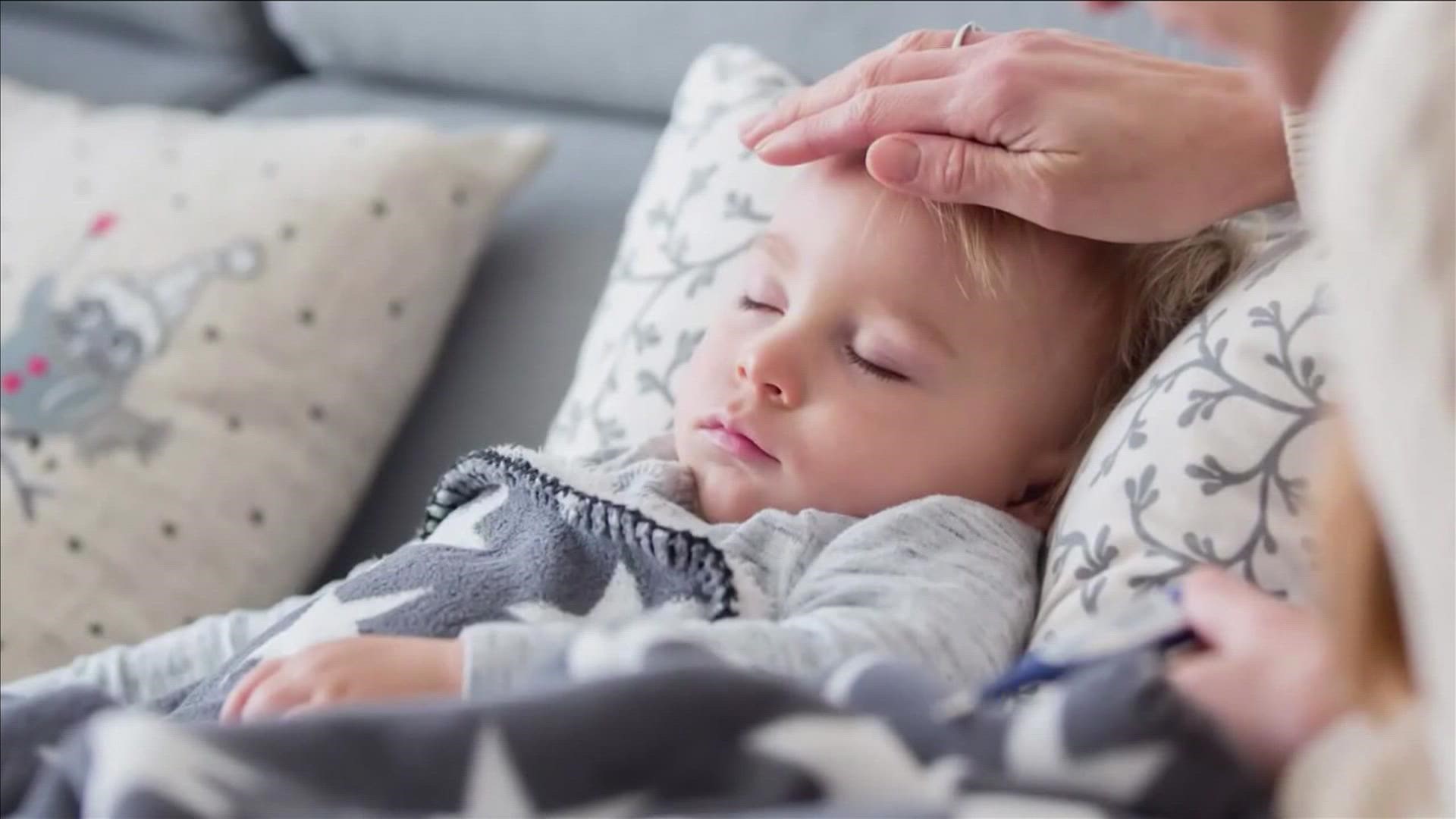MEMPHIS, Tenn. — Respiratory illnesses are reaching record numbers when it comes to children hospitalizations at a national scale, and hospitals in the Memphis area are realizing the effects. One virus that doctors are seeing is Respiratory Syncytial Virus — commonly known as RSV.
For instance, Le Bonheur Children’s Hospital has seen more cases of respiratory illnesses, particularly RSV.
“This hospital is pretty full right now," Le Bonheur Children’s Hospital Infectious Diseases Division Chief Dr. Sandy Arnold said. "We're seeing a lot of children — young children — with respiratory syncytial virus, which is a virus we typically see in the fall, although it's come a bit early."
Dr. Arnold said doctors noticed a surge in September instead of the expected November.
“RSV is spread from person to person, predominantly through contact, so yes, similar to the common cold." Dr. Arnold said. "It probably spreads via droplets like if somebody coughs in your face, you're probably going to get it from them, but it's not airborne.”
Those affected the most are young children.
“They get a lot of inflammation in their airways, and they can have difficulty breathing, so, in an older child or an adult, it just causes a really bad cold,” Dr. Arnold said.
On average, Le Bonheur has been testing 20 to 50 kids for RSV per day.
“About 30% of our tests for RSV are positive — a lot of those babies are being sent home, but many are being admitted to the hospital as well,” Dr. Arnold said. “I think that we're seeing this because people are acting as though the pandemic is over.”
If your child is sick, there are some clear symptoms.
“For the first few days, your child may just look like they have a runny nose and a bit of a cough," Dr. Arnold said. "If you see how quickly their breathing is getting worse, or if they start to pull in their chest or use their shoulders and their neck muscles to breathe, then you definitely want to have your child assessed by a doctor.”
To prevent getting the virus, there are always key steps:
- Stay home when sick.
- Cover your nose and mouth when sneezing or coughing.
- Wearing masks.
- Washing hands.

